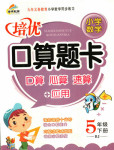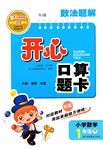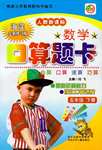题目内容
This is a story that can teach us a good lesson. One day, a man in rags begged from door to door along the street. With an old wallet in his hand, he was asking for a few coins to buy something to eat. He kept complaining about his bad fortune and kept 36 why those who had so much money were never 37 and were always desiring more.
“As far as I’m concerned, if I had only enough to 38 and to wear, I would not want anything more.”
Just at that moment Goddess Fortune, who came down the 39 saw the beggar and said to him, “Hi, I have wished to 40 you for a long time. Now, open your 41 and I will pour my gold into it. But I will do that only on this 42 : All that falls into the wallet will be pure gold; but every piece falling upon the 43 shall become dust. Do you understand?
“I see,” said the beggar.
“Then you should 44 ! It’s obvious that your wallet is a(an) 45 one, so don’t load it too heavily,” said the Goddess Fortune.
The excited beggar could hardly 46 to have gold. He quickly opened his wallet, and a 47 of yellow coins was poured into it. The wallet grew heavier and heavier.
“Is that enough?” Isn’t it cracking?” asked Fortune.
“Never fear. It’s still 48 enough now.” answered the beggar.
The wallet was filled with so many coins that the beggar’s hands began to 49 . “Ah, if only the golden stream would 50 forever! Just a little more,” said the beggar, “ 51 just a handful or two.”
“There! It’s full. The wallet will 52 .” warned the Goddess, but the beggar requested, “It will 53 a little more, just a little more.”
One more piece was added and the wallet split. The 54 fell upon the ground and became dust. The greedy beggar had now 55 but his broken bag.
1. A.showing B.explaining C.proving D.wondering
2. A.relaxed B.satisfied C.worried D.depressed
3. A.learn B.watch C.eat D.play
4. A.street B.bridge C.yard D.forest
5. A.praise B.forgive C.help D.comfort
6. A.coat B.pocket C.box D.wallet
7. A.occasion B.suggestion C.situation D.condition
8. A.hand B.feet C.ground D.beggar
9. A.look out B.look after C.look up D.look down
10. A.rich B.empty C.worn D.full
11. A.stand B.wait C.breathe D.think
12. A.stream B.piece C.pair D.variety
13. A.weak B.strong C.poor D.rich
14. A.spread B.close C.loose D.shake
15. A.pour B.end C.dry D.melt
16. A.take B.add C.lend D.borrow
17. A.flow B.burst C.disappear D.change
18. A.attract B.permit C.include D.hold
19. A.present B.food C.treasure D.water
20. A.nothing B.anything C.everything D.something
1.D
2.B
3.C
4.A
5.C
6.D
7.D
8.C
9.A
10.C
11.B
12.A
13.B
14.D
15.A
16.B
17.B
18.D
19.C
20.A
【解析】
试题分析:一个沿街乞讨的乞丐遇到了财富女神,财富女神给了乞丐许多金币,同时告诫乞丐,金币掉到地上则化为灰尘,贪婪的乞丐不听劝告,导致金币撑破钱包化为灰尘,乞丐又变得一无所有。故事告诫人们面对金钱不要贪得无厌。
1.D考查动词辨析。根据第一段最后一句,为什么那些人如此有钱却从不满足,还想得到更多。可知乞丐对此百思不得其解,“keep wondering”(一直想知道)符合句意。
2.B考查形容词辨析。还想得到的更多,所以不满足,“Never satisfy”(从不满足)符合句意。
3.C考查动词辨析。由常识可知,乞丐最重要的是要解决吃和穿的问题。eat(吃)对应下面提到的“穿”符合情景,learn“学习”,watch“看、观察”,play“游戏”,均不符合情景。
4.A考查名词辨析。根据第一段,乞丐在沿街乞讨,所以财富女神降落到大街上才能看到乞丐。street(街道)符合文意。bridge“桥”,yard“院子”,forest“森林”,均不符合文意。
5.C考查动词辨析。根据下文,打开你的钱包,我要给你一些金子,可知财富女神在帮助乞丐。所以选help意为:“帮助”。praise“表扬”,forgive“原谅”, comfort“安慰”,均不符合情景。
6.D考查名词辨析。根据第三段中“All that falls into the wallet will be pure gold”(所有进入你钱包的都是纯金)可知乞丐打开的是一个钱包,所以选 wallet,“钱包”。
7.D考查名词辨析。只有在这种条件下,我才会去做。“All that falls into the wallet will be pure gold; but every piece falling upon the 8 shall become dust”代指上文提到的这种条件。condition“条件、状况”符合句意。
8.C考查名词辨析。语境为:每一枚金币掉到地上都会变成尘土,ground(地面)符合情景。
9.C考查动词短语辨析。根据下文财富女神告诫乞丐不要装的太重,提醒乞丐注意、当心。所以选look out。look after照顾,look up仰视、向上看,look down俯视。
10.C考查形容词辨析。结合上题,财富女神提醒乞丐当心,下文又提醒乞丐“so don’t load it too heavily,”最后一段中告诉我们,钱包坏了,由此可以看出,这是一个旧钱包,所以选worn,意思是:“用旧的”。
11.B考查动词辨析, could hardly wait to do意为:“迫不及待的干某事”。句意:激动的乞丐早已迫不及待的想拿到金子。
12.A.考查名词。根据倒数第三段中提到“golden stream”可知答案。
13.C考查动词辨析。通过乞丐告诉财富女神钱包现在还很结实,可知不要为钱包担心。Never fear“不要害怕”。
14.D 考查动词。句意为:钱包装了如此多的金币,乞丐的手开始发抖。shake(发抖)符合情景。spread“伸展”,close“关闭”,loose“放松”,均不符合情景。
15.A考查动词。乞丐希望金子源源不断的流出,四个选项中只有pour(流出)能形象的描绘出乞丐的贪婪。
16.B考查动词辨析。对应前文的“Just a little more,”可知,这里表达的意思是:贪婪的乞丐想再往钱包中多装一两把金子。add(添加)符合句意。take拿、携带”,lend“借出” ,send“送给”,均不符合情景。最后一段的第一句话也有原词复现: One more piece was added and the wallet split。
17.B考查动词辨析。钱包已经装满了,而且是一个旧钱包,继续装可能会裂开。所以选burst“破裂”。最后一句话中的“split”为同义词复现。
18.D考查动词辨析。贪婪的乞丐认为钱包还能多装一点。hold“保存”符合语境。
19.C考查名词辨析。treasure(财宝)这里代指金币。钱包破裂后金币自然会掉到地上。present“礼物”, food“食物”,metal“金属”,均不符合句意。
20.A考查不定代词辨析。句意:衣衫褴褛的乞丐除了破裂的钱包一无所有。nothing“什么也没有”。
考点:考察人生哲理类短文
点评:本文告诫人们面对金钱不要贪得无厌。本文主要是测试学生综合运用语言的能力,即从语篇的角度综合测试阅读理解能力、词汇的掌握和对英语习惯用语的熟悉程度、以及语法规则的灵活运用。考生做题时必须时刻从上下文考虑,不应该只看到所添的词在短语或句子内是否可行。因此,在做题时最好将全文通读一下,了解了全文的意思以后再作答。

 培优口算题卡系列答案
培优口算题卡系列答案 开心口算题卡系列答案
开心口算题卡系列答案 口算题卡河北少年儿童出版社系列答案
口算题卡河北少年儿童出版社系列答案Let children learn to judge their own. A child who learns to talk does not learn by being corrected all the time; if corrected too much, he will stop talking. He notices a thousand times a day the difference between the language he uses and the language those around him use. Little by little, he makes the necessary changes to make his language like other people’s, in the same way, children learn to do all the other things without being taught—to walk, run, climb, ride a bicycle—compare their own performances with those of more skilled people, and slowly make the needed changes. But in school we never give a child a chance to find out his mistakes if we thought that he would never notice a mistake unless it was pointed out to him, or correct it unless he was made to. Let him work out, with the help of other children if he wants it, what this word says, what the answer is to that problem, whether this is a good way of saying or doing this or not. If it is a matter of right answers, as it may be in mathematics or science, give him the answer book. Let him correct his own papers. Why should we teachers waste time in doing such work? Our job should be to help the child when he tells us that he can’t find the way to get their own understanding, how to know what they know or do not know.
1.According to the passage, the best way for children to learn things is ___
|
A.to listen to skilled people’s advice |
|
B.to ask older people many questions |
|
C.to make mistakes and have them corrected |
|
D.to do what other people do |
2.According to the writer, teachers in school should ___
|
A.allow children to learn from each other |
|
B.point out children’s mistakes whenever they are found |
|
C.correct children’s mistakes as possible as they can |
|
D.give children more book knowledge |
3.Which of the following does the writer think teachers should not do?
|
A.Give children correct answers |
|
B.allow children to make mistakes |
|
C.Point out children’s mistakes |
|
D.Let children judge their own work |
4.The passage suggests that learning to speak and learning to ride a bicycle are ___.
|
A.different from learning other skills |
|
B.the same as learning other skills |
|
C.more important than other skills |
|
D.not really important skills |
It was Monday. Mrs. Smith's dog was hungry , but there was not any meat in the house.
Considering that there was no better way. Mrs. Smith took a piece of paper, and wrote the following words on it:“Give my dog half a pound of meat.”Then she gave the paper to her dog and said gently:“Take this to the butcher(* person whose job is selling meat)and he's going to give you your lunch today.”
Holding the piece of paper in its mouth, the dog ran to the butcher's. It gave the paper to the butcher. The butcher read it carefully, recognized that it was really the lady's handwriting and soon did it as he was asked to. The dog was very happy, and ate the meat up at once.
At noon, the dog came to the shop again. It gave the butcher a piece of paper again. After reading it, he gave it half a pound of meat once more.
The next day, the dog came again exactly at noon. And as usual, it brought a piece of paper in the mouth. This time, the butcher did not take a look at paper, and gave the dog its meat, for he had regarded the dog as one of his customers.
But, the dog came again at four o'clock. And the same thing happened once again. To the butcher's more surprise, it came for the third time at six o'clock, and brought with it a third piece of paper. The butcher felt a bit puzzled . He said to himeself,“This is a small dog. Why does Mrs. Smith give it so much meat to eat today?”
Looking at the piece of paper, he found that there were not any words on it!
1.Mrs. Smith treated her little dog quite .
|
A.cruelly |
B.fairly |
C.kindly |
D.friendly |
2.It seemed that the dog knew well that the paper Mrs. Smith gave it .
|
A.might do it much harm |
B.could do it much good |
|
C.would help the butcher |
D.was worth many pounds |
3.The butcher did not give any meat to the dog .
|
A.before he felt sure that the words were really written by Mrs. Smith |
|
B.when he found that the words on the paper were not clear |
|
C.because he had sold out all the meat in his shop |
|
D.until he was paid enough by Mrs. Smith |
4.From its experience, the dog found that .
|
A.only the paper with Mrs. Smith's words in it could bring it meat |
|
B.the butcher would give the meat to it whenever he saw it |
|
C.Mrs. Smith would pay for the meat it got from the butcher |
|
D.a piece of paper could bring it half a pound of meat |
5.At the end of the story, you'll find that .
|
A.the dog was clever enough to write on the paper |
|
B.the dog dared not go to the butcher's any more |
|
C.the butcher was told not to give any meat to the dog |
|
D.the butcher found himself cheated by the clever animal |
